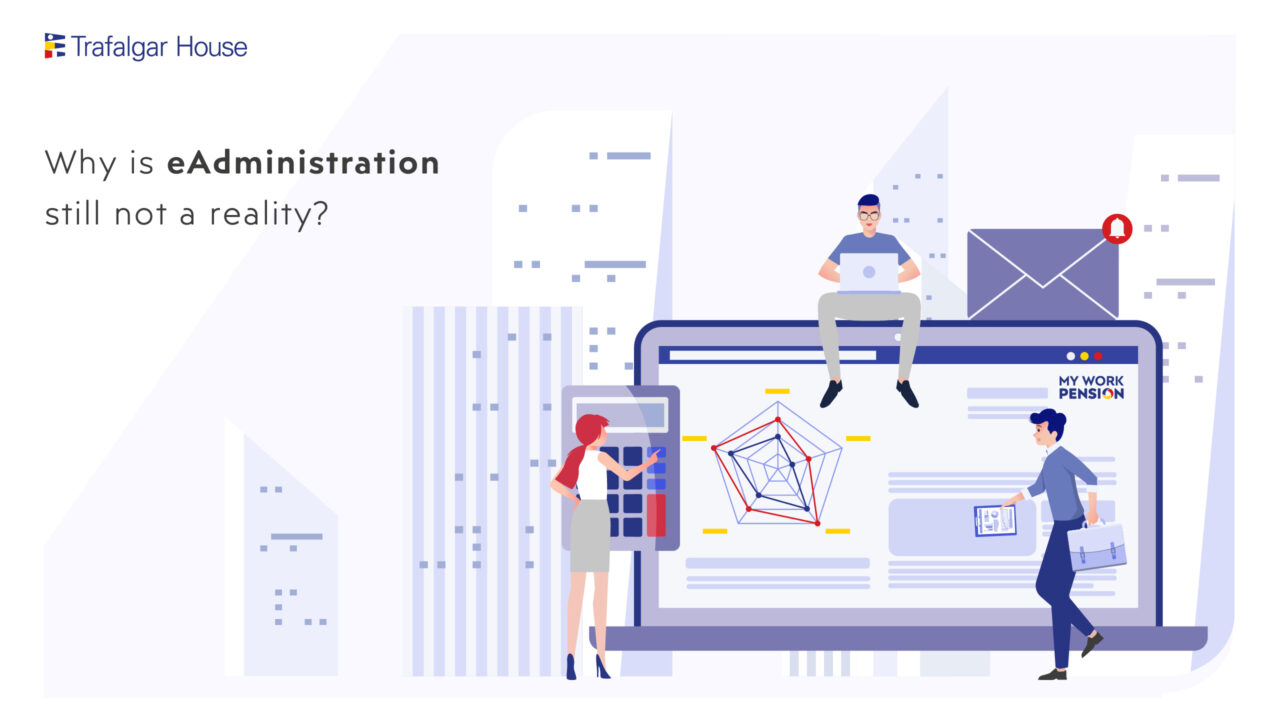Analogue to digital: why trustees need to embrace self-service
Recent research conducted by Trafalgar House into the preferences of the British public has provided valuable insight into the potential of online self-service for pension scheme members.


Analogue to digital: why trustees need to embrace self-service
The world is rapidly transitioning into a digital era, with businesses and industries adapting operations to suit the evolving needs and preferences of customers. The pensions industry is no exception. Recent research conducted by Trafalgar House into the preferences of the British public has provided valuable insight into the potential of online self-service for pension scheme members.
The shift towards digital
We recently asked the British public about their willingness to move to online-only pension communications. The results were as follows:
- 11% would definitely opt-out of an online-only platform
- 14% would probably opt-out of an online-only platform
- 21% probably wouldn’t opt-out of an online-only platform
- 29% definitely wouldn’t opt-out of an online-only platform
- 26% were unsure
These findings indicate that a majority (50%) of respondents are likely to embrace an online-only communication platform for their pension scheme. Additionally, a significant percentage (26%) remain undecided, suggesting that the right approach could persuade more members to adopt digital communications.
To use a practical example, one of our clients recently went “digital by default” which resulted in only 4% of members opting out of digital communications. The exercise also saw self-service registrations increase by 12%, taking total registered members to 45%, and digital communications by default adopted by 96% of the membership.
Why transition and is it worth it?
Trustees are often concerned about the reaction a move to digital will have with their membership. Worry about resistance to change and vulnerable members can often overshadow the real-life benefits of this change. But a well-run process can mitigate these risks and deliver meaningful change in the following areas:
- Cost-effective and environmentally friendly: By transitioning to online and digital communications, pension scheme trustees can save on the costs associated with paper communications. This switch is also beneficial for the environment, as it reduces paper waste and carbon emissions from mailing physical documents.
- Increased accessibility: Members can access their pension information anytime, anywhere, provided they have an internet connection. This convenience is especially valuable for those who are constantly on-the-go or have difficulties accessing traditional communication methods.
- Enhanced security: Online platforms provide a higher level of security compared to physical documents. Digital storage and encryption methods help protect sensitive member information from being lost, stolen, or damaged.
- Improved member engagement: Online platforms enable members to access their pension information quickly and easily. Providing interactive online tools, such as pension calculators and personalized planning resources, leads to better-informed decision-making and increased member engagement.
Taking action and overcoming the fear of change
Pension scheme trustees should not be afraid to push for online self-service and promote it to their members. Instead, they should focus on educating and reassuring members about the benefits and security of digital platforms. By highlighting the advantages, addressing concerns, and providing user-friendly interfaces, trustees can successfully transition their members to a digital first approach and improve their overall experience.
Online self-service for pension scheme members is not only a trend, but a necessary shift in the industry. Trustees should embrace this change and actively promote online platforms as the default communication method. By doing so, they will not only cater to the preferences of a majority of members but also create opportunities for greater long-term member engagement, improved security, and cost savings.


